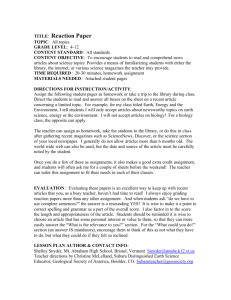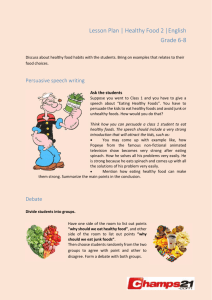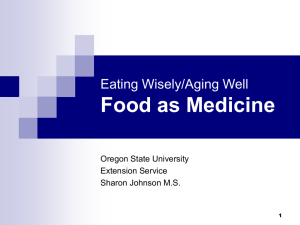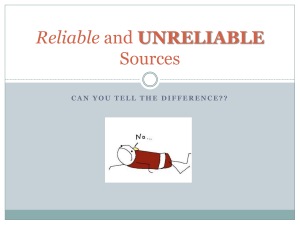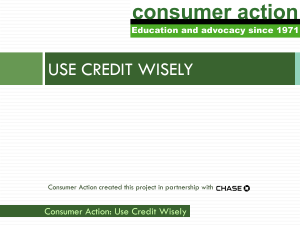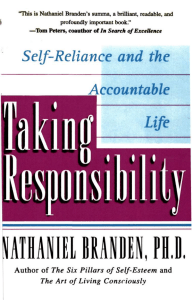Evaluating Health Information, Products and Services
advertisement
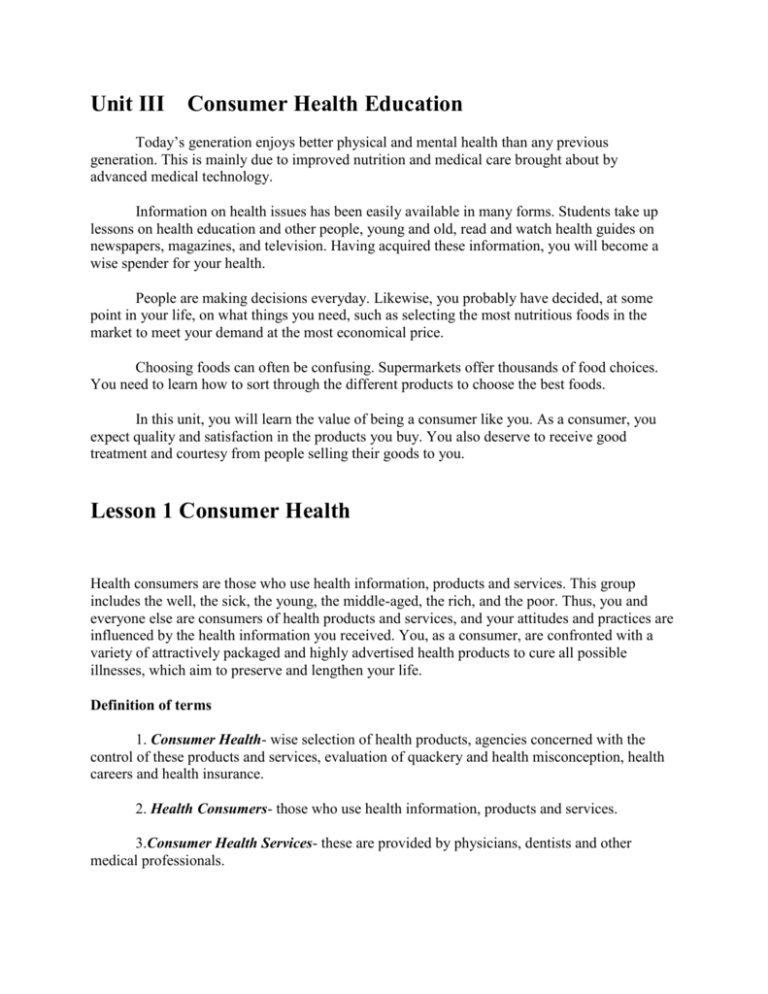
Unit III Consumer Health Education Today’s generation enjoys better physical and mental health than any previous generation. This is mainly due to improved nutrition and medical care brought about by advanced medical technology. Information on health issues has been easily available in many forms. Students take up lessons on health education and other people, young and old, read and watch health guides on newspapers, magazines, and television. Having acquired these information, you will become a wise spender for your health. People are making decisions everyday. Likewise, you probably have decided, at some point in your life, on what things you need, such as selecting the most nutritious foods in the market to meet your demand at the most economical price. Choosing foods can often be confusing. Supermarkets offer thousands of food choices. You need to learn how to sort through the different products to choose the best foods. In this unit, you will learn the value of being a consumer like you. As a consumer, you expect quality and satisfaction in the products you buy. You also deserve to receive good treatment and courtesy from people selling their goods to you. Lesson 1 Consumer Health Health consumers are those who use health information, products and services. This group includes the well, the sick, the young, the middle-aged, the rich, and the poor. Thus, you and everyone else are consumers of health products and services, and your attitudes and practices are influenced by the health information you received. You, as a consumer, are confronted with a variety of attractively packaged and highly advertised health products to cure all possible illnesses, which aim to preserve and lengthen your life. Definition of terms 1. Consumer Health- wise selection of health products, agencies concerned with the control of these products and services, evaluation of quackery and health misconception, health careers and health insurance. 2. Health Consumers- those who use health information, products and services. 3.Consumer Health Services- these are provided by physicians, dentists and other medical professionals. Lesson 2 Health-Related Problems of Consumers Health information and advice about health products and services come from different sources. Incredible amounts of health information and misinformation find their way in books, pamphlets, brochures, magazines and newspapers or are passed by word of mouth through claims, testimonials and are broadcast o television and radio programs and services. All of us are purchasers of goods and services. If we are to buy wisely from the standpoint of health and safety, we must: - Just which products and services will be beneficial, harmful or useless; - Know the local laws and regulations that protect consumers; - Locate dependable medical, dental and nursing services; and - Apply the knowledge acquired in respect to personal and environmental health in the purchase of personal services and of goods. Evaluating Health Information, Products and Services Selection of reliable sources of health information and advice about health products and services is vital to consumer health. Health information should be appraised by scientific guides; that is unreliable sources of health information be differentiated by applying sound scientific criteria. Then, a selection of the products and services needed should be made on the basis of findings. Unreliable Sources of Health Information 1. Customs and superstitions of the culture that do not withstand the test of scientific method. 2. Information based on ignorance and prejudice. 3. Information devised by quacks. 4. Commercialized health information. Reliable Sources of Health Information The most reliable single source of health information is still the competent physician. He can tell you better than anyone else whether some newly-reported remedy is appropriate for you. Criteria for Evaluating Health Information/Products/Services Before one accepts any form of health information, one should ask the following: 1. Who are the people or agencies giving the information? 2. What is their reputation in the community? 3. What are their educational background and professional experience in health sciences? 4. How is the information presented: in an educational and scientific manner or in the form of advertised gimmicks? 5. What are their motives? Do they intend to improve health and prolong life or to make money? Lesson 3: Relationship Between Health Information and Decision-Making Individual decisions are influenced not only by advertising but also by an individual’s level of education, family beliefs, religion, socio-economic status, community, personal goals and other factors. With all these influences, it might seem that a person can hardly be blamed for making choices about consumer health products and services. But this would deny self-responsibility. Consumers can make informed choices if they desire to do so. By accepting self-responsibility, consumers can then seek out information on products and services, analyze each in its own merits, and make wise decisions accordingly. The wide variety of foods and drugs available means that you must be critical when buying a product. Some criteria for selecting health products may help you obtain quality goods. Before buying any health products, ask about the following: 1. 2. 3. 4. 5. 6. Does the product protect your health and pocket? Who are the manufacturers of the product? What is the reputation of the manufacturing company? What is the brand, size and weight of the product? Has the product ever been tried and tested? How long? Does it bear a seal of acceptance and high quality standard set by the Philippine Medical Association and the Bureau of Food and Drugs? 7. Has the product been recommended or prescribed by a physician? Effects of Health Products When Not Used Wisely When a consumer does not use health products wisely, he gets only minimum protection, value and satisfaction from them. He may face many real changes and may be subjected to the following problems: 1. Harmful effects of drugs. 2. 3. 4. 5. 6. 7. 8. Risk of developing a major health disorder Emotional tension Loss of time, money and effort Overdose and its complications Poor health Loss of liver Side effects such as allergies, etc. Group 1 IV-1 Sampaguita


